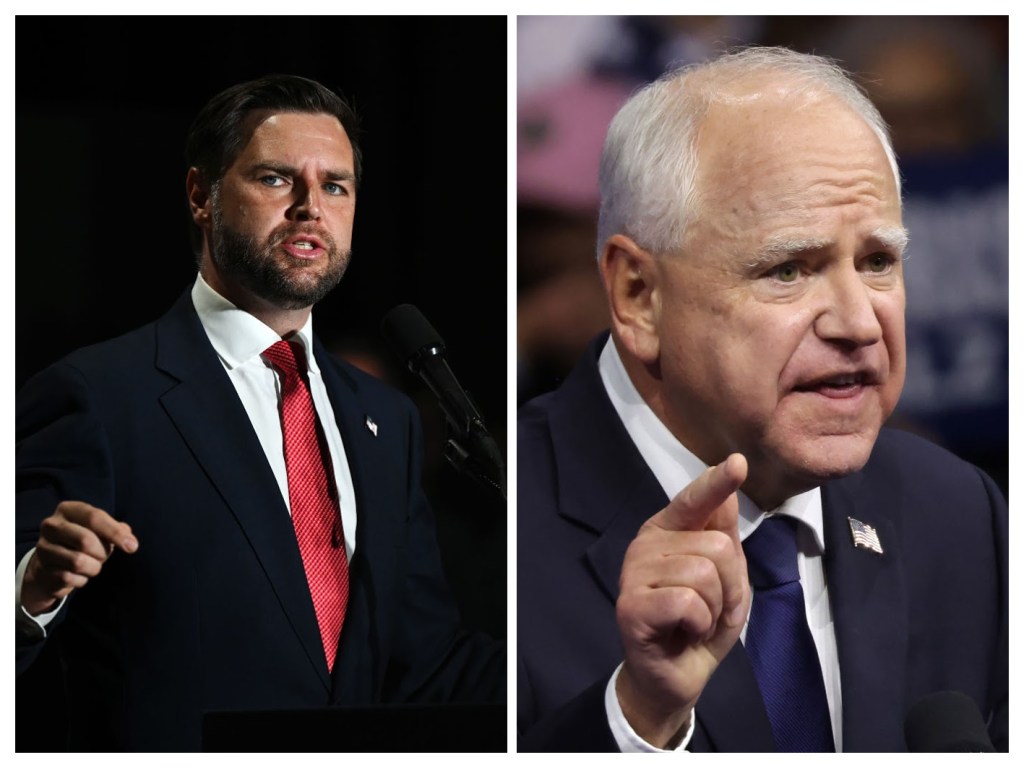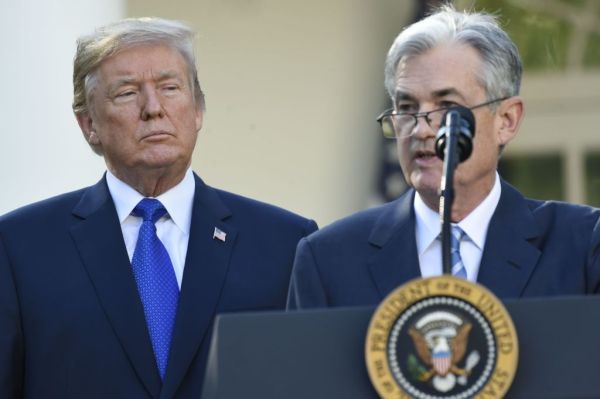Maybe the most surprising thing to learn about Tim Walz is that he’s only six months older than Kamala Harris.
They look about a decade apart, but the vice president will turn 60 this month, and Walz turned 60 in April. When you know that, it makes this tidbit from Mark Leibovich’s superb Atlantic profile of the Minnesota governor less surprising: Before President Joe Biden was pushed out of the race, Walz was eying a 2028 presidential run for himself.
Sixty-four wouldn’t be young by the historical standards of the presidency—he would be the sixth oldest—but by the standards of the recent past, it’s well outside of the geezer range.
Leibovich’s point about Walz is that his “pop-up populist persona” conceals a profoundly ambitious politician who, in six terms in Congress and two terms as governor, has been a relentless climber, adapting to each political climate he has encountered. And the role needed for his current gig is cutting “a convincing beta figure” as Harris’ wingman, a task at which he has excelled.
Twenty years after his career as an assistant high school football coach, Walz has reinhabited that persona, to stay on the ground in the blue-wall swing states, rally the faithful, and not soak up any of the limelight from Harris. As she traces her wary way through the national media and the international stage, “Coach” seems happy, thrilled even, to play his small supporting role like a secondary character from Lake Wobegon.
Does it get Walz any closer to the presidency? Oh yeah, youbetcha. Sure, he’s not the most likely person to get elected in 2028. If Harris loses this year after her sprint to the center, one assumes that the freakout on the progressive left will be so profound as to forbid any tolerance of centrism, folksy or otherwise, among Democrats in the near future. If she wins, he’s going to be a very convincing replica of fellow Minnesotan Walter Mondale, which isn’t a name synonymous with presidential success. But as Harris’ own story demonstrates, that’s a lot to be said for hanging around the basket and waiting for a rebound to tip in.
So, the schtick is working. He lays it on too thick, but then, ours is not an age of subtlety.
As one local political commentator told Leibovich about Walz: “Oh, he is totally full of s–t. And he’s also really good at being full of s–t.” In the world of campaign politics, this is extraordinarily high praise.
So how good is J.D. Vance at “being full of s–t?”
If Walz has morphed and modified his persona and policies to fit the demands of his ambitions, Vance has been defined as much by his radical reinventions of self as any of the characters he has played along the way.
Whereas the rap on Walz is that he’s a chameleon, changing colors to fit his needs, Vance’s perceived flaw is that he’s like a caterpillar who transformed wholly into some other creature.
Over time, he’s changed his name, his faith, his political philosophy, and, most famously, his opinion of Donald Trump. And for many Republicans, this is actually quite reassuring. For traditional GOPers, Vance’s dramatic reinvention from thoughtful bestselling author to bomb-throwing radical looks like a red-team version of Walz’s journey from centrist to progressive zealot to “Coach.”
We say we don’t like phonies in politics, but phoniness of Walz’s type is reassuring. It sends a message about constraints on power. We see it in Harris’ enthusiastic pandering of a Marxist kind. No, not that one. It was Groucho who said, “Those are my principles, and if you don’t like them … well, I have others.” It’s not statesmanship, but eagerness to please is a sin voters are quick to forgive.
If Vance is the same thing as Walz—an ambitious man pandering to meet the needs of his political moment—then Vance could be expected to change again with circumstances. What he had to be to get rich and famous was different from what he had to be to be a senator and vice presidential candidate and, presumably, different from what he would have to be in office and in his inevitable presidential run.
Twenty years Walz’s junior, Vance could have another three or four metamorphoses left in him, and one of them might be sober-sided, pragmatic moderation if that’s what it took to win the ultimate prize. Democrats allege that Vance has no core beliefs and is only doing the bidding of his greatest benefactor before Trump, Peter Thiel. Not very flattering, but that’s certainly someone you could do business with.
That’s what Trump seems to think, or at least to have thought. Trump found out too late that Mike Pence’s Ned Flanders routine wasn’t an act, gosh darn it. But a person so nakedly ambitious and ideologically flexible as Vance couldn’t be on the level, could he? In that way, Vance’s abrupt reversal on Trump actually commended him to the former president. People who will say absolutely anything to get what they want line up well with Trump’s way of doing things.
But what if Vance isn’t a hack politician? What if he is a zealous convert who has been extraordinarily lucky in his timing? In this version, Vance typifies a group of other men of his age who have been, as they say, radicalized by what they have seen in an era of dramatic technological and societal change. What if he means it?
It’s not unusual for people who struggled with a sense of self to embrace their discovered selves with fervor. That’s certainly what Vance’s fellow radicals believe about him. The fact is that Vance was so powerfully red-pilled in the opening years of the Trump presidency that he will never be tempted again to seek the approval of the hated mainstream elites.
Neither of those two dominant ways of looking at Vance—the ambitious, morally flexible shapeshifter and the zealous convert—is probably exactly right. Like most people, he’s probably full of contradictions, and the story he tells himself about himself probably wouldn’t hang together if he had to express it publicly.
But it leaves one to wonder. When Vance does something like joining Tucker Carlson’s traveling show for a stop in Hershey, Pennsylvania, what’s the motivation? It hurts Vance’s chances to become vice president. Appearing in a swing state with a figure so polarizing and putting himself on the same level as Kid Rock and Roseanne Barr, Vance is making it harder for suburbanites to forget their misgivings about his “childless cat lady” riff and other baggage.
The people who want to see Vance with Carlson surely don’t need convincing to vote for Trump, so it would seem to be giving Democrats ammunition and getting nothing in return. Maybe he had agreed to the appearance long ago and Carlson wouldn’t let him back out gracefully. Maybe Vance just miscalculated. Or, maybe, Vance believes that he is a leader in a movement that will fundamentally change the world.
In politics, where we see a lot more of the Walz kind of pandering than anything like righteous belief, we tend to do zealots the favor of not believing them to be sincere. Maybe we should think about taking Vance at his word.
We will get a good window on those questions tonight when Walz and Vance face off in the CBS News studio in New York. We know which Walz to expect, just another regular guy who was trying to “mind [his] own damn business” until that nice lady from California called him up to offer him a job.
If Vance is a chameleon and not a caterpillar, he will turn on his local-boy-made-good charm and present himself as a bright, reasonable young man who just wants to serve his country. Someone who you could feel comfortable leaving to keep an eye on Trump. If we get the hard, sharp, mocking version of Vance we’ll know that maybe it isn’t an act.










Please note that we at The Dispatch hold ourselves, our work, and our commenters to a higher standard than other places on the internet. We welcome comments that foster genuine debate or discussion—including comments critical of us or our work—but responses that include ad hominem attacks on fellow Dispatch members or are intended to stoke fear and anger may be moderated.
With your membership, you only have the ability to comment on The Morning Dispatch articles. Consider upgrading to join the conversation everywhere.